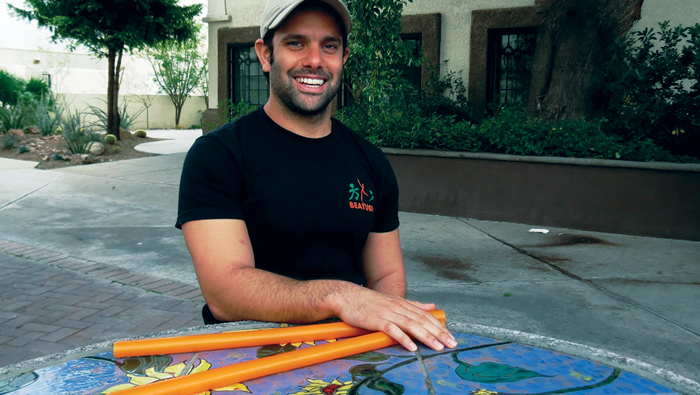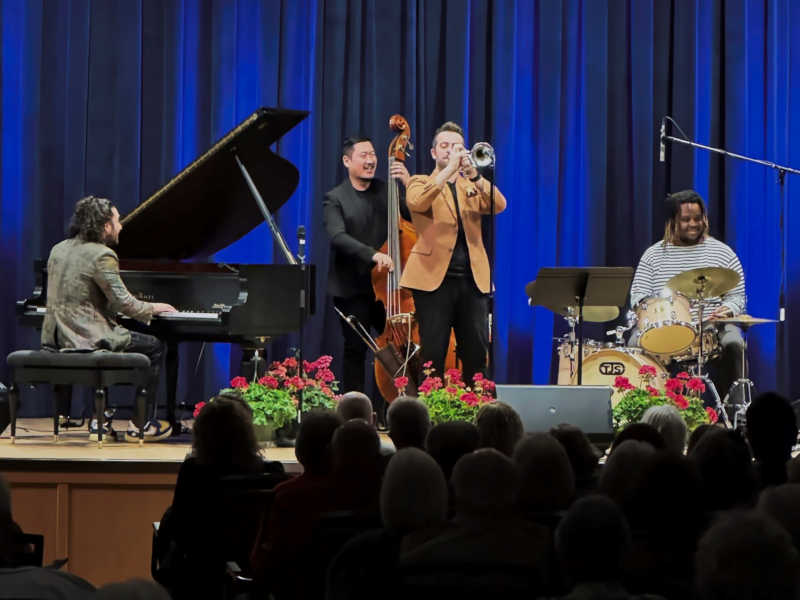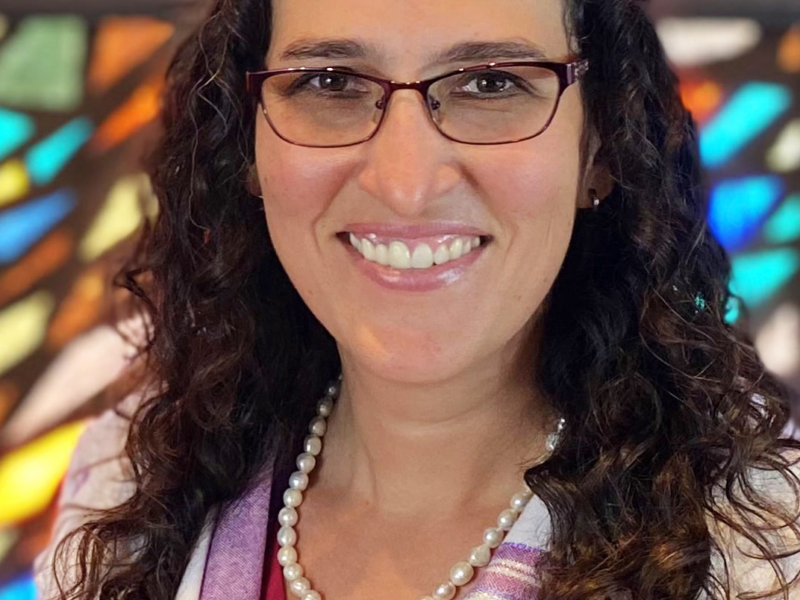“My future dreams do not necessarily include fame and fortune. However, I would love to see ‘Beatube’ become a household name,” says Or Maoz, co-founder of Beatube, a method of physical exercise that combines movement, rhythm, tapping and – above all – interaction with a partner.
Or, 29, lives in Tucson, where he works as a Jewish Agency Israel Fellow to Hillel on the campus of the University of Arizona – a position that puts him in an ideal location to promote Beatube in the U.S.
“I’m supposed to go back to Israel at the end of summer 2017,” says Or. “The past two years, my Israeli business partner, Amit Hadad, and I operated Beatube in both markets. He took care of things there and I did my best to promote the method here.” Before Or heads back to Israel, his goal is to have a solid foundation of local clients, as well as to continue promoting Beatube on a national and international basis.
“The only word that comes to my mind is ‘language,’” says Or when asked to describe Beatube. “It’s still flowing and growing. Neither myself nor Amit knew what we were doing when we created it.”
Or describes it as “a form of physical and mental exercise based on interacting with another person. You can’t do Beatube on your own. You use two orange plastic tubes, so there is no actual physical contact, but eye contact and total concentration on your partner’s rhythm and movement is an absolute necessity.”
Or was raised in the city of Karmiel, in western Galilee in northern Israel. He was a part-time musician and a student of martial arts before deciding to study physical education in Tel Aviv, where he met Amit Hadad, a fellow student and martial arts fan. The two became friends. At the end of their third year in physical education school, they were asked to prepare a final project.
“We wanted to do something special, not another standard, boring thing,” Or recalls. “We were both into martial arts moves and techniques like Brazilian Capoeira [a martial art that combines dance, acrobatics and music], so we decided to put together a movement workshop that combined those elements.”
Or says the beginnings of Beatube were very basic, but the response was amazing: “Teachers and students were actually running in the building and calling other people to come and see what we were doing. It was obvious we were on to something big.”
Or emphasizes the challenges in promoting a new and unknown product in a market full of gyms and exercise classes, pointing out that while there are many classes and workshops, very few are actually based on coordinating with a partner.
“Zumba is the most well-known example and it’s already slowing down,” says Or. “In its current form, Beatube is the product of three years of work and research – and Amit and I keep working and developing it all the time. We collaborated with a brain-activity expert to create exercises that will be most effective in challenging the human brain.”
Or says that Beatube makes you work your body and mind simultaneously, starting with easy, basic challenges and moving faster and harder as you go along.
“We identified a need in people to have that kind of human interaction – and we were right,” says Or. “In the U.S., I have organized workshops in Las Vegas and New York for groups of up to 600 people who were just craving the opportunity to have direct contact with another person. These people spend most of the day sitting alone in a cube in front of a computer screen.”
The good news is that everyone can do it. “There is no age limit,” says Or. “We work a lot with senior citizens and dementia and Parkinson’s disease patients – people who [are] amazed to discover how moveable their bodies still are. On the other hand, it’s [also] a great activity for children, so we aim for everybody.”
Or has also worked to keep the program affordable. “The cost of a workshop totally depends on the customer requirements: how many people, how long, how far we need to travel, how much equipment we’ll need to bring,” says Or. “We always try to adapt and find a fee the customer can afford.”
Regular Beatube club members and certified instructors can become independent agents and offer their own workshops. The monthly fee – paid on the Beatube website – is about $25. “We send you all the information and an online tutorial,” says Or, stressing affordability and that “our main dream is to become a household name and this is the best way to do it.”
Or explains the origin of Beatube’s trademark orange tubes: “Well, that’s just another weird coincidence. The shop in Jerusalem that sold us the original plastic tubes had only two colors in stock that day – blue and orange – so we went with the brighter color. I never thought it [would] become our trademark, but people seem to be in love with those tubes. At the end of every workshop, the hardest part is convincing them to give all the tubes back.”
To learn more about Beatube and/or to sign up to become a certified Beatube instructor, visit beatube.com.
Tal Peri resides in Scottsdale. Before coming to the U.S., he worked for some of Israel’s leading media groups for over 25 years covering art, music, theater and entertainment.





